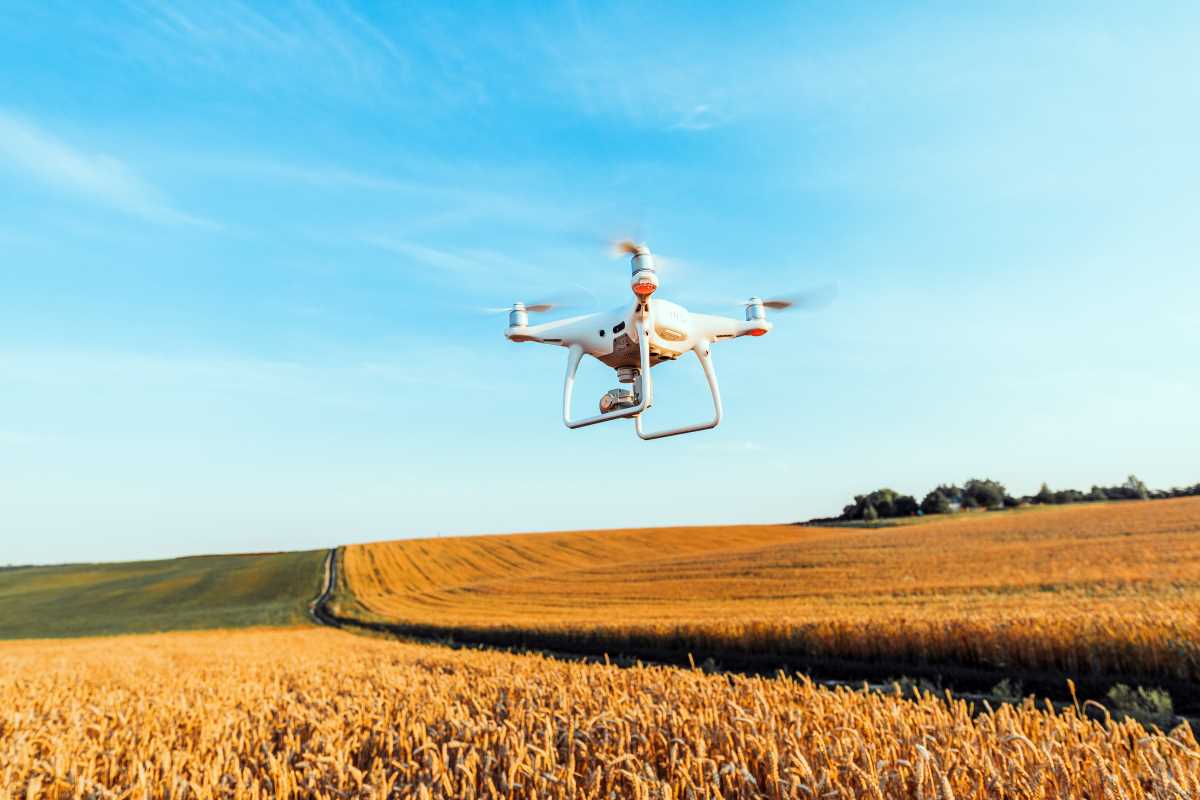When you think about food, what comes to mind? Maybe it’s your favorite meal or a go-to snack. But behind every bite you take, there’s a fascinating world of science and technology working to improve what we eat, how we eat, and even how our food gets to us. Food science isn’t just about creating new recipes or adjusting flavors; it’s a booming industry powered by groundbreaking technology. For young professionals looking for a fulfilling, impactful career, food science is brimming with opportunities.
This isn’t basic lab work with beakers and test tubes; it’s where technology, nature, and creativity meet to tackle some of the planet’s toughest challenges, like feeding a growing population while preserving the environment. To thrive in this field, understanding the influence of technology is not optional. It unlocks doors to innovations creating smarter, more sustainable food systems. Curious about what a modern career in food science looks like? Read on for a deep exploration of this exciting field.
The Fusion of Tech and Food Science
Food science itself isn’t brand new. Scientists have long studied how food interacts with our bodies, how it changes under different conditions, and how to make it safer or tastier. But advancements in technology are dramatically reshaping the field. What traditionally took years to achieve can now be accomplished in weeks or even days, thanks to breakthroughs in artificial intelligence (AI), biotechnology, automation, and more.
One example is the application of AI algorithms that analyze consumer trends or improve product formulations. Tools like these help researchers identify optimal ingredient combinations or find ways to lengthen shelf life without preservatives. Similarly, technologies like precision agriculture are rewriting the way farmers grow the very crops that food scientists rely on.
This tech-driven shift isn’t just about improving how food tastes or lasts; it impacts global supply chains, addresses pressing concerns about waste, and makes food systems more sustainable. Careers in this space are evolving accordingly, blending traditional food science expertise with cutting-edge tech skills.
High-Tech Solutions Redefining Food Careers
1. Artificial Intelligence (AI) in Food Innovation
AI has revolutionized countless industries, and food science is no different. Imagine an AI program that develops entirely new food products by analyzing millions of data points on taste preferences, dietary trends, and nutritional goals. For example, companies like IBM have employed AI tools–such as Watson–to create innovative recipes that meet dietary needs without sacrificing flavor.
AI applications aren’t just limited to recipes. Take how PepsiCo utilized AI to roll out its beverage line in record time. By crunching data on taste preferences and consumer feedback, the company was able to predict exactly what would resonate with its target audience. These insights saved years of trial and error.
For food scientists, this creates exciting hybrid roles that blend culinary creativity with computational power. Professionals in this space are expected to understand everything from ingredient chemistry to machine learning models. This might sound intimidating, but it’s also a huge opportunity to drive innovation.
Companies are also leveraging AI to combat food waste. AI-powered solutions can assess ingredient freshness and predict shelf-life accurately. For example, an AI tool might suggest the exact packaging environment to extend the life of fresh produce or dairy, preventing tons of unnecessary spoilage.
2. Biotechnology Making Food Smarter
If you’ve heard of golden rice or lab-grown meat, you’ve already seen biotechnology in action. Biotech has a profound impact on food science, where manipulating the essentials of food–proteins, sugars, and more–can create entirely new possibilities.
Take genetic engineering in crops. Today’s food systems demand higher yields with fewer resources, and biotech responds to this challenge by creating crops resistant to disease, pests, or extreme weather conditions. Take drought-tolerant maize or blight-resistant potatoes. These innovations not only ensure food security but also minimize environmental harm.
Precision fermentation is another area revolutionizing food biotechnology. This method essentially redefines fermentation with targeted microbial processes to produce animal-free food components. For instance, Perfect Day, a biotech company, has created animal-free whey protein. It behaves just like traditional whey, making it easier for brands to craft plant-based cheese, yogurts, or protein shakes without livestock farming.
What does this mean for aspiring professionals? The opportunities are vast, ranging from hands-on lab research roles to process optimization in food manufacturing plants. Unlike a decade ago, food scientists today may find themselves collaborating with geneticists, engineers, and even sustainability experts to create smarter, healthier options for consumers.
3. Automation on the Food Factory Floor
Walk into a modern food production facility, and you might feel like you’ve entered a sci-fi movie. Robots now handle intricate tasks like sorting fresh produce, assembling bakery goods, or even inspecting quality standards down to microscopic details. Automation boosts consistency and efficiency while drastically reducing human errors or injuries on factory floors.
A great example comes from chocolate production. Employing robotics to temper chocolate ensures each batch has the same smooth texture. Robots in such settings use precise temperature control that would take human workers much longer to manage. Similarly, coffee roasters have embraced automated systems that fine-tune roast profiles based on the slightest variations in bean quality.
For new professionals entering the field, robotics and automation open doors to numerous cross-disciplinary careers. This might mean programming robotic platforms, engineering sensor-packed systems for quality control, or implementing connectivity systems for factory-wide data analysis. If you’ve got a knack for both technology and food science, this domain is a goldmine.
4. Data-Driven Insights for Supply Chain Management
The food supply chain–from the farm to your table–is an intricate network fueled by data. Without it, ensuring bananas ripen at the right time or milk doesn’t spoil on supermarket shelves would have been nearly impossible.
AI-enhanced logistics systems analyze weather patterns and market trends to determine the best harvesting times or shipping routes for perishable goods. Some companies also use blockchain data for complete traceability, ensuring every food item’s origins are transparent. Walmart is among the retailers adopting blockchain to track leafy greens from farm to shelf within seconds.
If you love problem-solving with analytics, supply chain management offers a fascinating career trajectory. Whether you work on demand forecasting, logistics optimization, or sustainability audits, your contributions help reduce waste, cut logistics expenses, and guarantee product quality.
5. Sustainability Through Technology
Environmental sustainability is arguably one of the most urgent challenges the food industry faces. This crisis has spurred technological innovations that emphasize reduced waste, smarter resource use, and eco-friendly alternatives.
Take vertical farming, for instance. Companies like AeroFarms grow fresh produce in multi-level indoor facilities, reducing land use by up to 90%. By using precise LED lights and hydroponics, vertical farms make it feasible to grow fresh food in urban centers, minimizing transport emissions.
Another example lies in sustainable packaging. Biodegradable wrappers, plant-based containers, and even edible cups are cutting edge. Companies like Notpla are using seaweed to create packaging that decomposes naturally within weeks, making it a game changer for single-use plastics.
For young professionals, sustainability offers inspiring career paths. You could specialize in material science to improve packaging or focus on maximizing energy efficiency in agricultural systems. Regardless of your niche, your work in sustainability has the potential to set you apart as a forward-thinking expert.
Why Young Professionals Should Care
The collision of food science and technology isn’t just a passing trend. It’s reshaping global systems and creating pathways for rewarding careers. For young professionals, entering this industry is a chance to innovate. The demand for tech-savvy food scientists is skyrocketing, with businesses actively seeking talent that combines technical skills with a love for food.
You’re not just earning a paycheck–you’re addressing global issues like hunger, reducing waste, and pioneering a more sustainable future. Every advancement in this field has real-world impact, from enabling healthier diets to cutting carbon emissions. That’s a powerful reason to take the leap.
How to Get Started in a Tech-Driven Food Science Career
- Educate Yourself - Start with a strong base in chemistry, biology, and tech-driven solutions. If your coursework doesn’t include emerging tools like AI or blockchain, consider online certifications. These bridge the gap between traditional training and future-proof skills.
- Gain Hands-On Experience - Internships at food startups or labs can link theory to practice. Places experimenting with fermentation or supply chain analytics are especially valuable.
- Stay Updated on Trends - Technology evolves rapidly, so keep learning. Read industry publications, attend expos, or join forums discussing advancements.
- Find a Niche - Whether it’s AI-driven flavor design or sustainable packaging, becoming an expert in one area can help you stand out in the workforce.
- Network and Collaborate - Food thrives on teamwork. Interact with researchers, engineers, and business developers through networking events or platforms like LinkedIn.
There has never been a more exciting time to enter the field of food science. Technology is driving change at every level, creating careers in areas that didn’t exist ten years ago.







